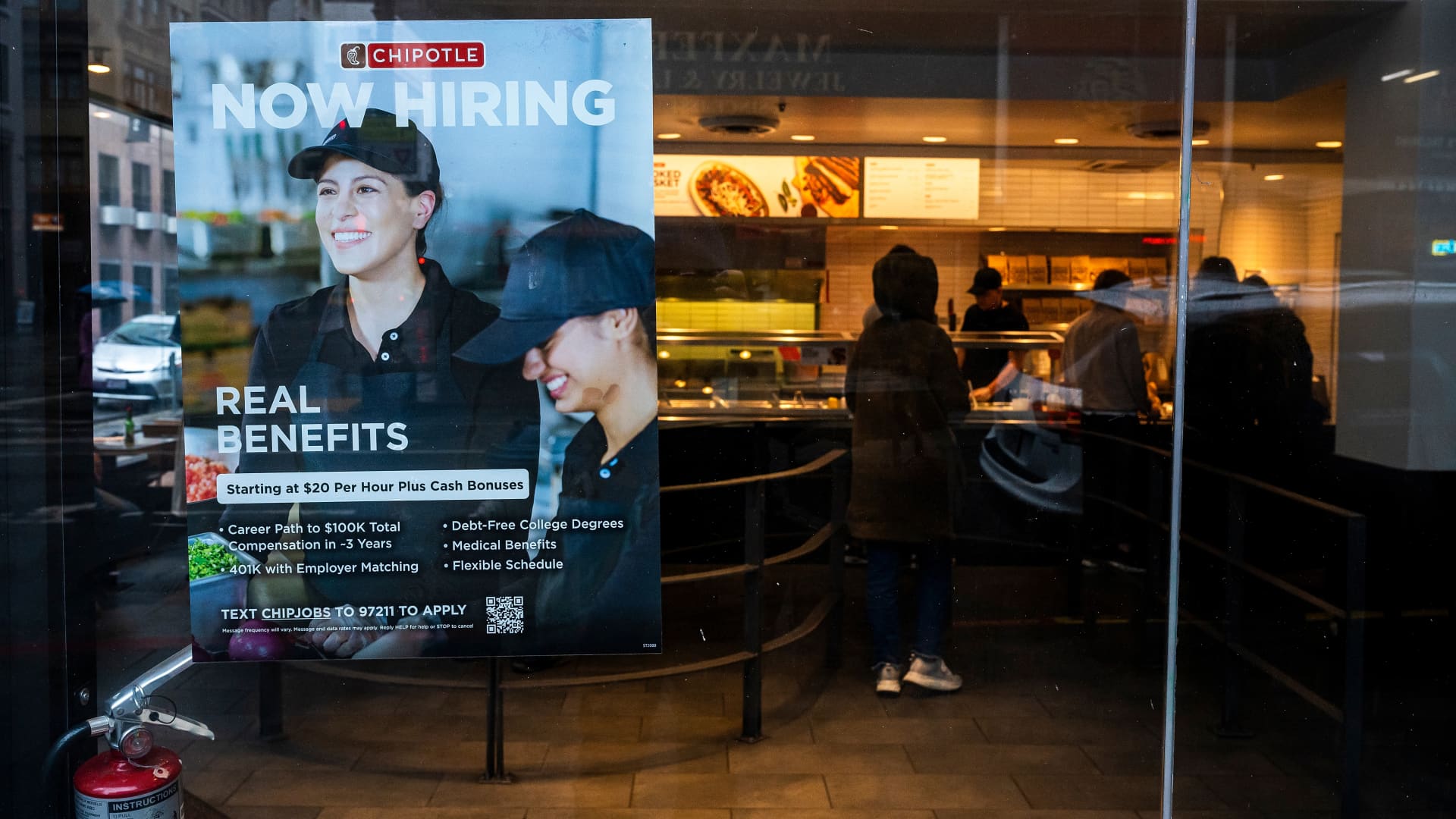Private sector companies added more jobs than expected in January, furthering the case for a stable labor market that allows the Federal Reserve time as it contemplates its next policy move, ADP reported Wednesday.
The payrolls processing firm said companies created a net 183,000 jobs on the month, slightly more than the 176,000 in December, a number that was revised sharply upward from the initial figure of 122,000. Economists surveyed by Dow Jones had been looking for a gain of 150,000.
Pay for workers who stayed in their jobs grew at a 4.7% annual rate, or 0.1 percentage point more than in December.
Though the headline ADP number topped expectations, the internals showed an unbalanced picture.
All of the job creation came from service providers, who added 190,000 positions while goods producers lost 6,000. (The numbers don’t add up to the 183,000 due to rounding.)
“We had a strong start to 2025 but it masked a dichotomy in the labor market,” APD’s chief economist, Nela Richardson, said. “Consumer-facing industries drove hiring, while job growth was weaker in business services and production.”
Trade, transportation and utilities topped sectors with 56,000 new jobs, with leisure and hospitality close behind at 54,000 and education and health services adding 20,000. However, manufacturing lost 13,000 positions.
Job creation was spread fairly evenly across business size, with companies that employ workers leading with 92,000.
Fed officials are watching the jobs picture closely as they consider whether to continue lowering interest rates. The Fed last year cut 1 percentage point off its key borrowing rate in an effort to support a labor market that had showed signs of slowing. Recently, policymakers have stressed the importance of staying patient as they watch the tariff battle in Washington as well as the impact from the rate reductions.
The ADP report serves as a run-up to the more closely watched nonfarm payrolls report, due Friday from the Bureau of Labor Statistics, which unlike ADP includes government workers. The consensus view for the BLS report is a gain of 169,000 in payrolls in January, with the unemployment rate holding at 4.1%.
The two reports sometimes differ significantly. However, ADP said it continues to expand its sample size for the pay measure portion, which is now at 14.8 million compared with nearly 10 million when it launched.

 Accounting1 week ago
Accounting1 week ago
 Economics1 week ago
Economics1 week ago
 Personal Finance1 week ago
Personal Finance1 week ago
 Accounting1 week ago
Accounting1 week ago
 Finance1 week ago
Finance1 week ago
 Economics1 week ago
Economics1 week ago
 Economics1 week ago
Economics1 week ago
 Economics1 week ago
Economics1 week ago























